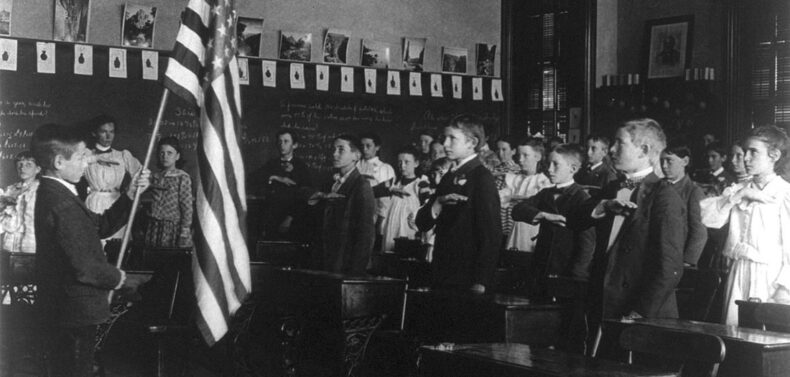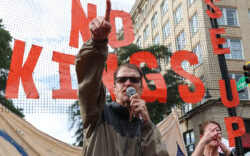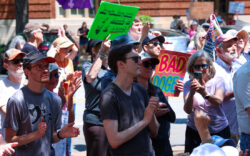“Patriotism is the last refuge of a scoundrel,” said British writer Samuel Johnson in 1775. Today, patriotism is often the scoundrel’s first refuge.
Forced patriotism is at the center of a lawsuit brought by the parents of a South Carolina high school student for an incident that happened last fall during the school’s daily recital of the Pledge of Allegiance. Marissa Barnwell, a 15-year-old student at River Bluff High School in Lexington, SC, says that she was accosted by a teacher and pushed against a wall while walking to class as the pledge was recited over the school’s intercom system.
More than 30 years ago, South Carolina enacted a law requiring state schools to play the pledge each class day, but the law also prohibits punishment for students who do not acknowledge the pledge as long as the students are not disruptive. Federal law agrees that Americans—including high school students—cannot be compelled to parrot the Pledge of Allegiance. Barnwell is an African-American student who says that she stopped reciting the pledge because of her belief that this nation has yet to live up to the pledge’s goal of “liberty and justice for all.” Her lawsuit, if successful, could be a much-needed history lesson for her school, her state and her nation.
The Pledge of Allegiance is sometimes used by conservatives as a measure of patriotism and a litmus test for loyalty. America’s young people have for decades recited the pledge during school days. What they should learn in school is its history through the lens of a socialist statement steeped in the ideology of left-wing radicalism. Francis Bellamy, the author of the Pledge of Allegiance, was an American socialist and Christian minister who once preached a sermon titled “Jesus the Socialist.” Bellamy wrote the pledge for a children’s magazine in 1892 to commemorate the 400th anniversary of Columbus’s voyage to the New World.
Though he was a Christian preacher, Bellamy did not include the phrase “one nation under God” in his original pledge. He wanted to make the Pledge of Allegiance inclusive of all Americans, not just for citizens with religious beliefs. His pledge held to the spirit of this nation’s original motto: e pluribus unum—Latin for “from many, one.” In 1954, long after Bellamy’s death, politicians inserted the phrase “under God” into the pledge during a McCarthy-era “Red Scare.” Bellamy’s daughter objected to the postmortem political tinkering with her father’s words, but conservatives felt compelled to throw a sop to the religious right by mixing religion into the patriotism of the pledge.
In 1893, just a year after Bellamy wrote the Pledge of Allegiance, another American dissident wrote the patriotic song “America the Beautiful” after being inspired by the view from atop Pike’s Peak in Colorado. Katharine Lee Bates was, like Bellamy, a person who would be scorned as a “woke liberal” by today’s MAGA minions. She protested American militarism, and supported the labor movement that sought better wages and working conditions for those who toiled in this nation’s mines, mills, farms and factories during the Gilded Age of the late 19th century. In her poem that became the iconic song “America the Beautiful,” one of the verses expressed her hope that “selfish gain no longer stain the banner of the free.”
Today some of the worst stains on our national banner have come from those who espouse patriotism. In 1969 the Supreme Court ruled in favor of 12 Iowa teenagers who had worn black armbands to school to mourn the dead on both sides of the Vietnam War. School officials were rebuffed by the high court’s decision that wearing the armbands was free speech and that the U.S. Constitution applies to students as well as to adults. Patriotic poseurs among America’s politicians and school officials did not get the memo. If they have their way, our country may succumb to an authoritarian regime of mandated patriotism and blissful ignorance. Marissa Barnwell is giving adults a history lesson about what George Washington meant when he said, “Guard against the postures of pretended patriotism.”
Like what you just read? Support Flagpole by making a donation today. Every dollar you give helps fund our ongoing mission to provide Athens with quality, independent journalism.










